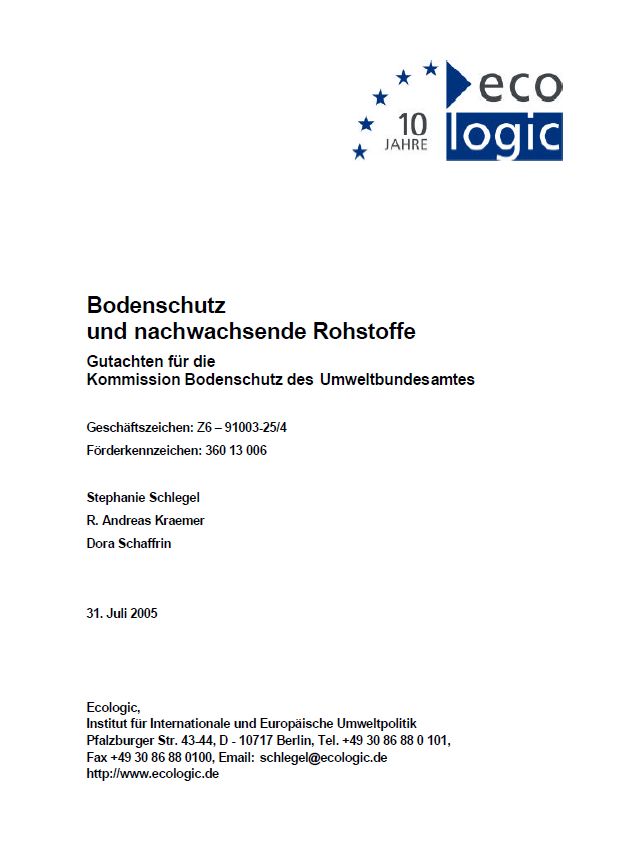The increased use of renewable resources has several positive environmental effects in comparison to the use of fossil fuel. Nevertheless, with an extended cultivation of energy crops and other renewable resources, there may also be negative consequences on soil quality. The evaluation of these effects is the focus of this project.
The increase in the use of renewable resources is due to Germany‘s goal of raising the share of renewable energies. This goal was supported by an increased financial support for renewable energies as a result of the Renewable Energy Sources Act (EEG).
According to these goals, 20% of Germany‘s electricity and 10% of Germany‘s primary energy demands should be covered with renewables by 2020. According to a study of the german Ökoinstitut , about 10% of the german electricity, heating, and fuel for cars could be produced by 2020 from biomass alone.
However, the cultivation of renewable resources may also lead to negative effects on soil comparable to intensive conventional agriculture.
On behalf of the German Federal Environmental Agency (UBA), Ecologic examined the impacts of renewable resources on soil quality and options for sustainable cultivation.
The study is available for download [pdf, 623 KB, German].




